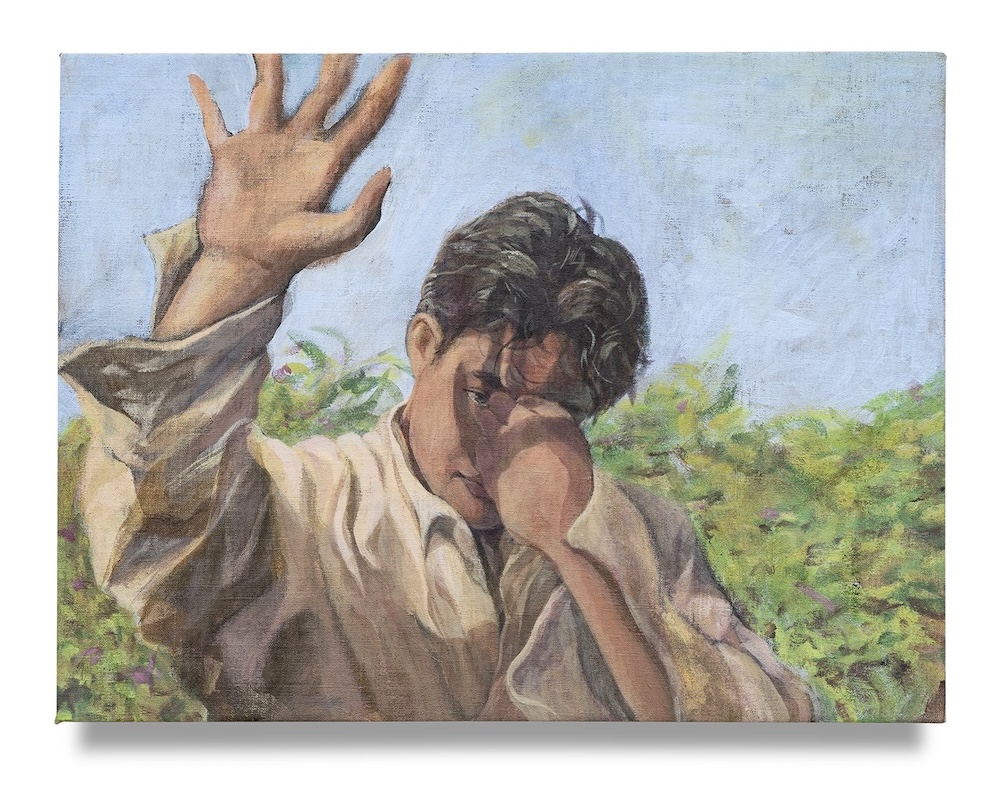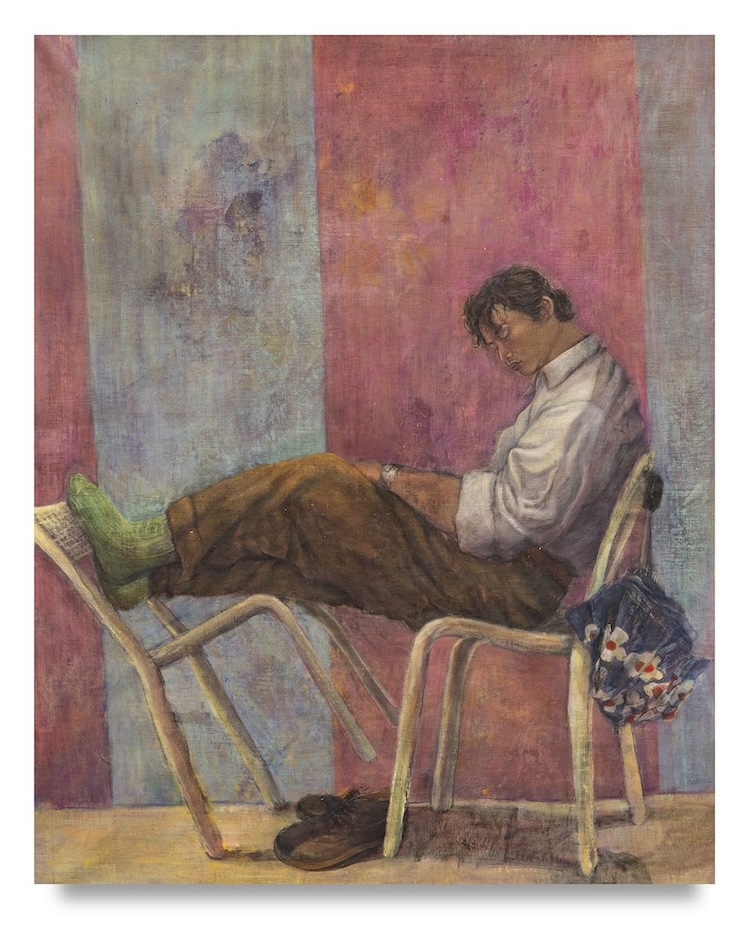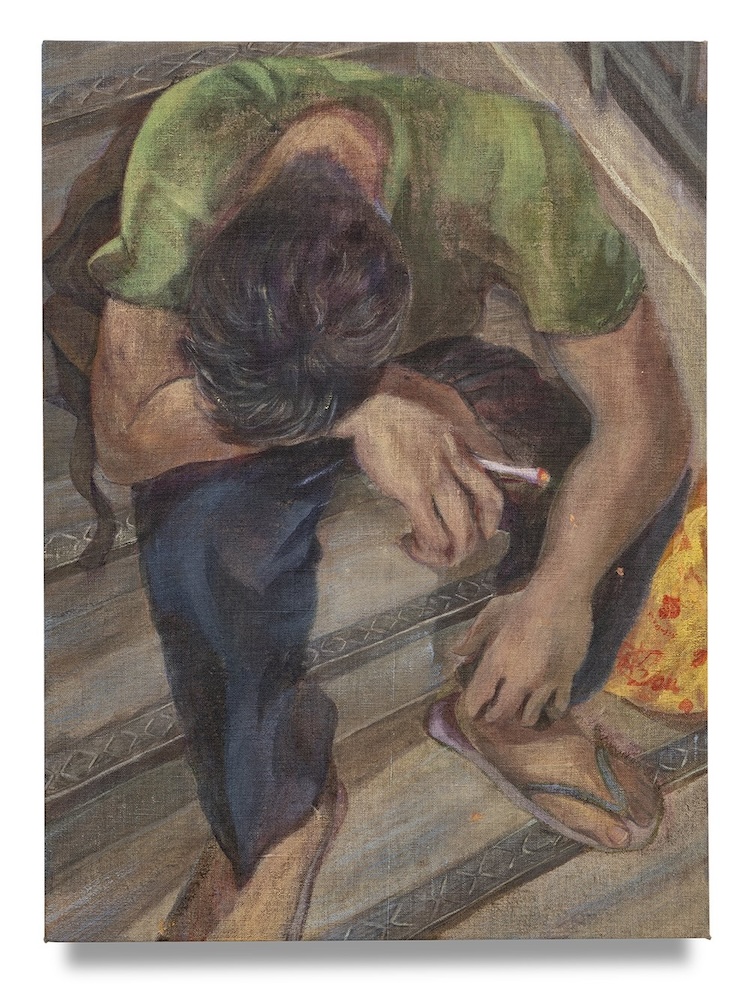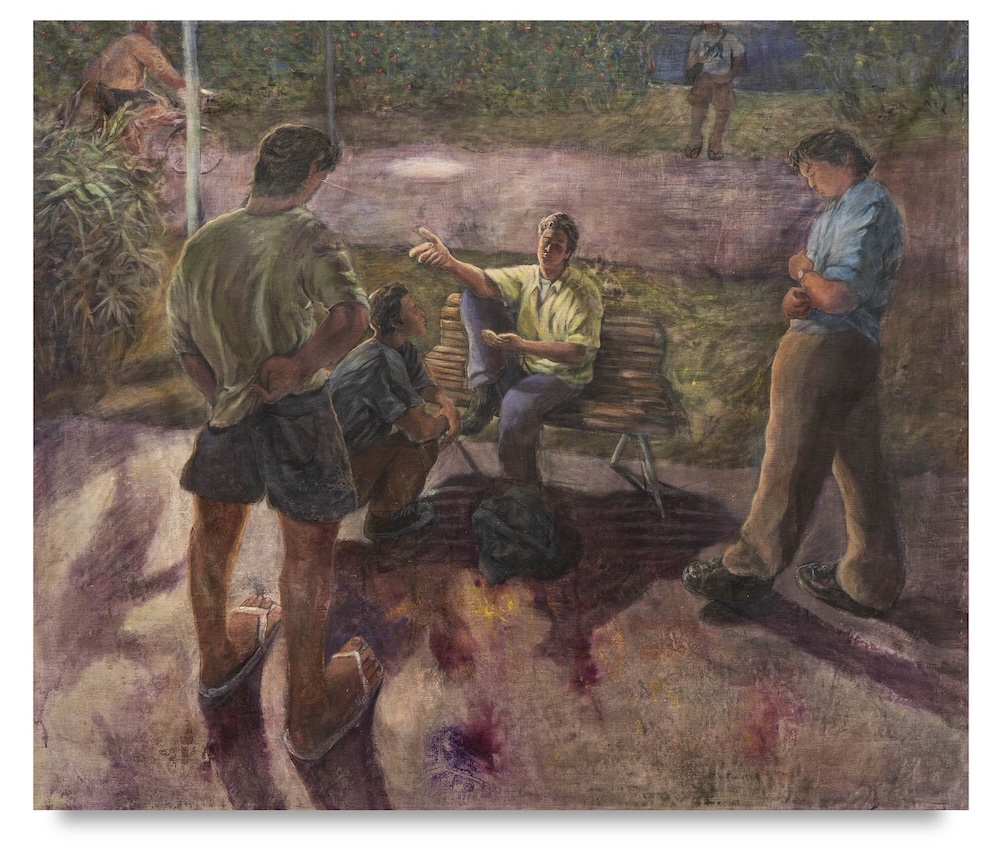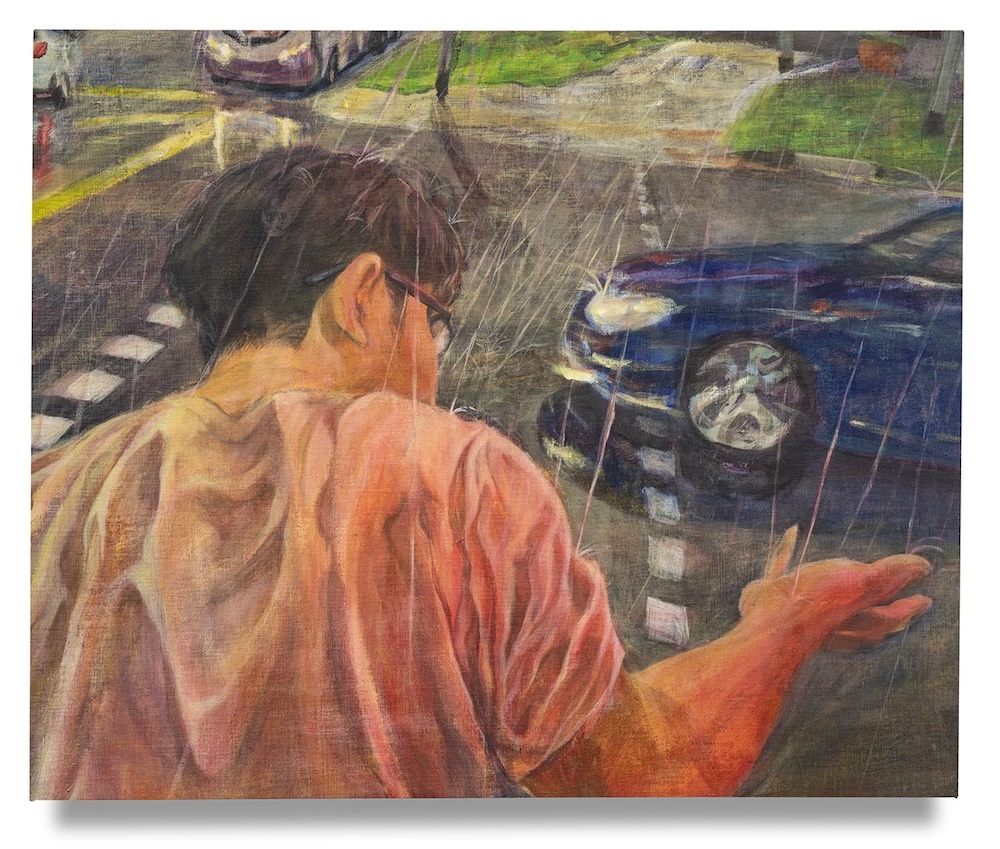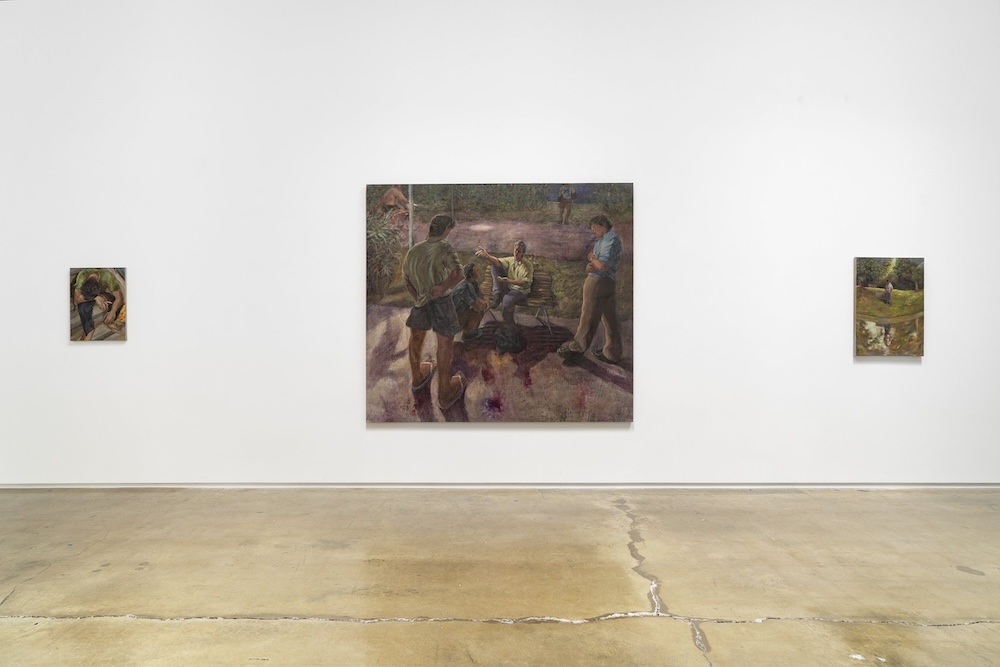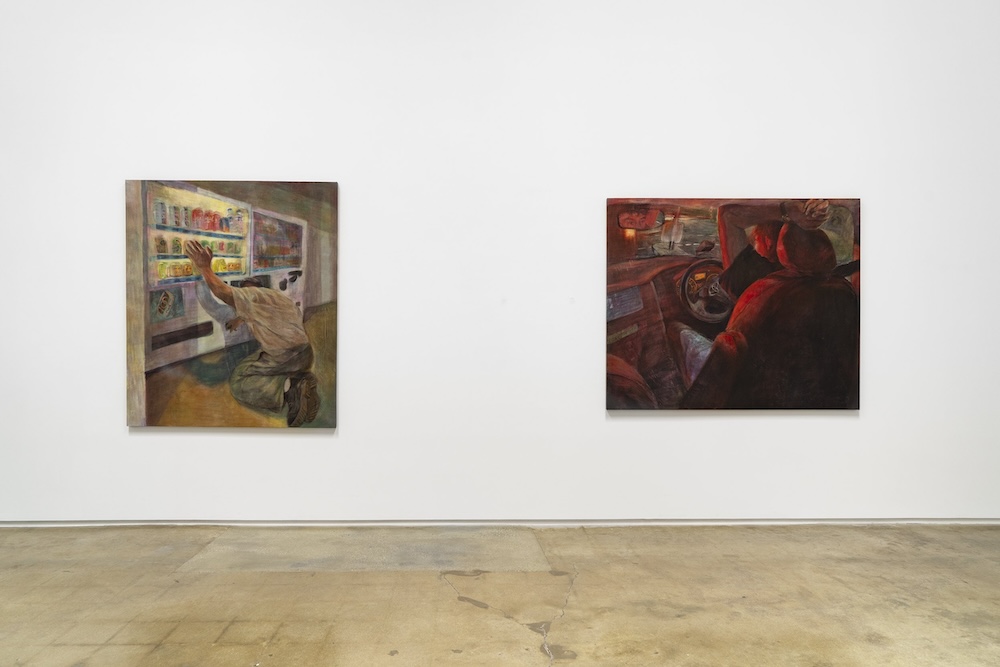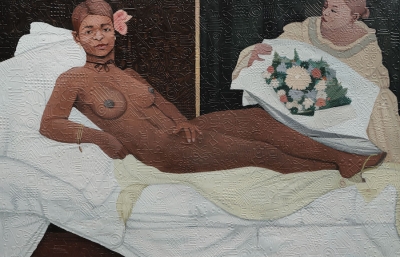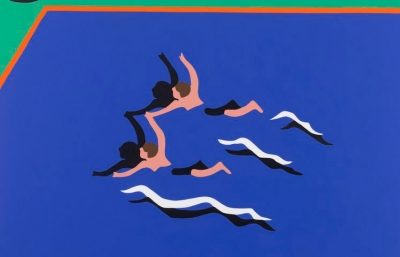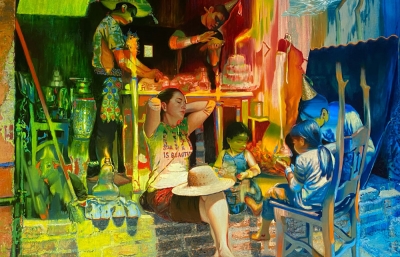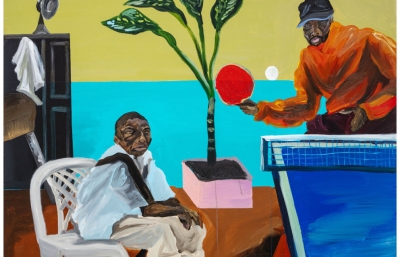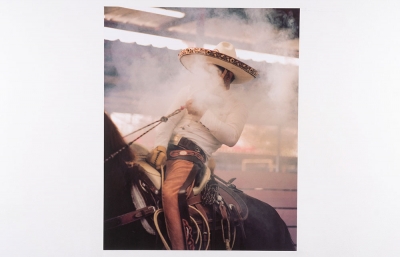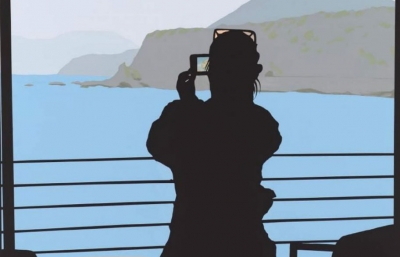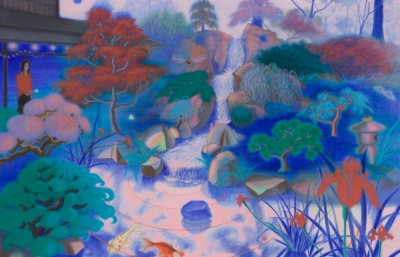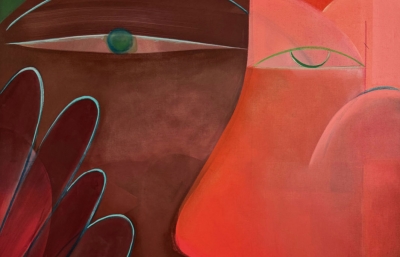Michael Kohn Gallery is pleased to announce an exhibition of new paintings by Singaporean artist, Faris Heizer. In These days–Heizer’s first solo exhibition in the U.S.–figurative imagined realities are presented in a range of expressive moments of action to contemplative sedentary states. Within Heizer’s emotionally-charged and intriguing canvases, corporeal gesture, light, and perspective narrate stories embedded in domesticity.
His figures, at times painted in exaggerated poses– an arm swung high to block out the blaring sun, a body curved forward renouncing to exhaustion, or heavy extended legs testing the stability of a chair– transport commonplace objects and earthly environments into intimate and existential moments. This perspective, achieved both through the framing of pictorial space and cinematic staging of the forms within, thrusts the viewer in striking proximity to the scenes.
Layered over thinly applied acrylics and gestural brushstrokes is a theatrical interplay between light and dark. In this tenebrosity lives a notion of pensive loneliness in works like Waiting for the green light and Feels like years, whose subjects are captured in a moment of quiet reflection that muffles the surrounding urban stimuli. Finding place within this atmosphere is an air of dry humor in What are the chances?; illuminated by the orb of a vending machine’s fluorescent light, a large figure crouches down as he tries his luck at finding abandoned change in the coin slot.
Heizer explains, “Narratives are built from within. It starts with an emotion, then I fill in the blanks with the quotidian.” The emotive banality of Heizer’s compositions is one that parallels Edward Hopper’s realist paintings of everyday city life; his forms reminiscent of the elongated bodies of the Mannerists; and his subjecthood in conversation with Neo-Realist painter Liu Xiaodong. Nodding to and departing from the tradition of figurative painting, this reflective body of work delicately bridges the gap between subject and viewer by tapping into the uncanny of the ordinary.



